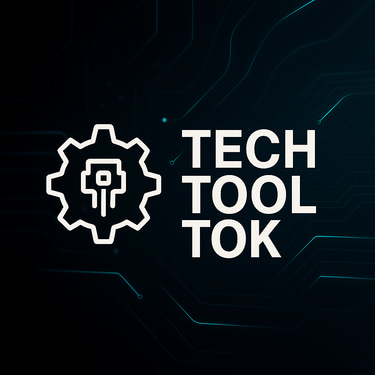Transforming AI Automation from Side Hustle to Full-Time Business: A Practical Guide
8/16/20255 min read



Understanding AI Automation: Streamlining Tasks and Reducing Costs
In the contemporary business environment, AI automation has emerged as a critical instrument for entrepreneurs aiming to enhance operational efficiency and minimize costs. AI tools are designed to streamline numerous tasks traditionally performed manually, enabling business owners to focus on core activities that drive growth. The integration of AI technologies into everyday operations offers significant benefits across various domains, including content creation, customer service, and e-commerce.
For instance, in the realm of content creation, platforms utilizing AI can generate high-quality written material in a fraction of the time it would take a human. Tools such as ChatGPT have enabled marketers and content creators to produce articles, blog posts, and social media content efficiently. These tools not only save time but also reduce labor costs, thereby increasing profitability. Similarly, AI-driven customer service solutions, such as chatbots, can handle inquiries and provide assistance 24/7. This capability significantly enhances customer satisfaction while minimizing the need for extensive human resources, resulting in substantial operational cost reduction.
In the e-commerce sector, AI automation is revolutionizing inventory management and personalization. Advanced analytics allow businesses to predict stock needs accurately, reducing both overstock and stockouts. Personalization engines, meanwhile, can tailor shopping experiences based on customer behavior, leading to higher conversion rates and increased sales. Companies like Amazon and eBay have fully embraced AI to streamline their operations, showcasing how effective these technologies can be in fostering business growth.
Furthermore, the implementation of AI automation can yield new income streams. By automating various tasks, entrepreneurs can allocate resources toward developing innovative products and services, expanding their market reach, and ultimately driving higher revenue. The scalability that comes with AI tools allows businesses to adapt to changes in market demand efficiently.
Building and Hosting Your Professional Website with Hostinger
Creating a professional website is a crucial step for entrepreneurs looking to transform their AI automation side hustle into a full-time business. Hostinger provides an affordable, user-friendly platform that makes this process straightforward. To begin, sign up for an account on Hostinger's website and choose a hosting plan that matches your business needs; their shared hosting plan is a great starting point for new entrepreneurs. Selecting the right plan ensures that you have the resources necessary for effective website performance, including speed and scalability.
Once you have selected your hosting plan, the next step is to register a domain name that reflects your brand. Opt for a name that is memorable and relevant to your AI automation services, as this will enhance your visibility in search engine results. Hostinger provides an easy domain registration service, which you can utilize as part of your hosting package.
After securing your domain, proceed to install a content management system (CMS) like WordPress. Hostinger offers a one-click installation option, allowing you to set up WordPress quickly. This powerful platform facilitates website customization, offering numerous themes and plugins tailored for businesses. Enhance your website's functionality by integrating essential plugins for SEO and security, such as Yoast SEO and Wordfence. These tools will help optimize your website for search engines and protect it from potential threats.
Furthermore, prioritize the loading speed of your website, as a fast website improves user experience and SEO rankings. Utilize Hostinger's built-in optimization tools to enhance performance. Once your website is up and running, consistently update your content, focusing on SEO best practices like keyword integration and link building to attract potential clients effectively. This will not only improve your website's visibility but also establish your brand as a credible source in the AI automation field.
Marketing Strategies to Scale Your AI Automation Business
As the AI automation industry continues to grow, developing effective marketing strategies plays a crucial role in scaling your business. A well-rounded approach that encompasses digital marketing, social media outreach, search engine optimization (SEO), and content marketing can greatly enhance your visibility and reach within this competitive market.
Digital marketing includes a variety of methods such as pay-per-click advertising, email marketing, and online webinars. These techniques can be particularly effective for promoting your services to potential clients who rely heavily on automated solutions. Establishing a robust email list through lead magnets and nurturing these leads with targeted content can convert casual interest into committed partnerships.
Social media outreach is another essential facet of any marketing strategy for an AI automation business. Platforms such as LinkedIn and Twitter serve as valuable channels for connecting with industry professionals and potential customers. By sharing informative content related to AI automation trends and insights, you can position your brand as an authority in the field. Engaging with your audience through interactive posts, webinars, or Q&A sessions can further enhance brand loyalty and trust.
Furthermore, leveraging SEO practices is critical for driving organic traffic to your website. This involves optimizing your content for relevant keywords related to AI automation, including both primary and long-tail keywords. Crafting high-quality blog posts and utilizing alt tags for images can improve your search engine rankings and facilitate broader audience reach.
Creating a solid brand identity is equally important. Ensure your branding resonates with your target audience through consistent messaging, visuals, and values across all marketing channels. Content marketing should also be at the forefront of your strategy. By producing valuable and educational content, you not only showcase your expertise but also attract potential customers seeking solutions in AI automation.
In addition, analyze successful campaigns from industry leaders to glean insights on effective strategies that work. Tools such as Google Analytics and social media management software can provide beneficial data to help you refine your marketing approach continuously. By thoughtfully combining these strategies, your AI automation business can experience significant growth and establish a prominent market presence.
Maintaining Consistent Revenue and Ensuring Long-Term Success
Running an AI automation business requires a strategic approach to maintain consistent revenue and ensure long-term success. One of the foundational aspects is effective customer relationship management. Building and nurturing relationships with clients is paramount, as it leads to repeat business and referrals. It is essential to maintain open lines of communication, understand their needs, and respond promptly to inquiries. Providing exceptional support can create a loyal customer base that can rely on your services for future projects.
Implementing recurring income models is another effective strategy for generating consistent revenue. By creating subscription-based services or retainer agreements, businesses can ensure a stable income flow. These models not only contribute to predictable cash flow but also foster long-term engagements, allowing you to innovate continuously based on client feedback. This ongoing connection can result in upselling opportunities, enhancing overall revenue streams.
Diversifying income streams is also crucial in mitigating risks associated with reliance on a single revenue source. Explore additional services or products that complement your core offerings. For instance, offering training sessions or consultancy in automation can provide clients with added value while expanding your reach in the market. This diversification allows the business to adapt to market changes, ensuring a more resilient revenue structure.
Data analysis and feedback loops play an integral role in the growth of an AI automation business. Regularly reviewing pertinent metrics and gathering client feedback can inform strategic decisions. By understanding what works and where improvements are needed, your business can pivot and adapt in the fast-evolving tech landscape. Setting realistic business goals aligned with these insights will guide your growth trajectory effectively. As AI continues to develop, continuous learning and adaptation will be essential for thriving in this dynamic environment.

